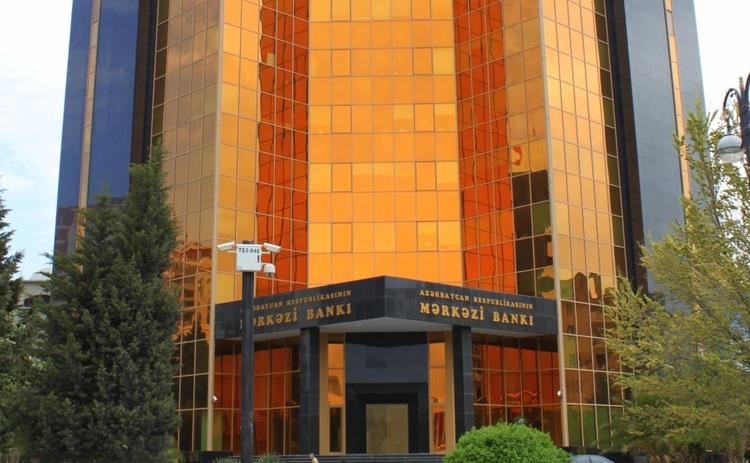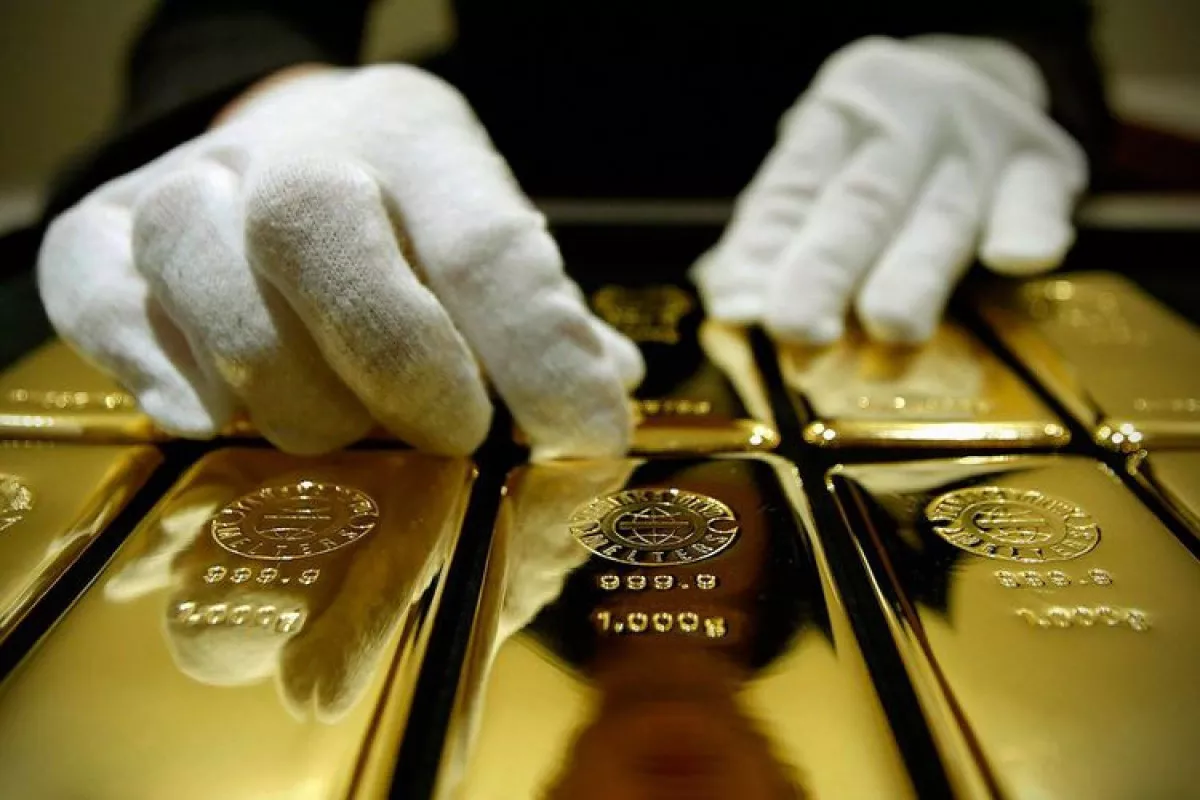Azerbaijani State Oil Fund diversifies assets Focus on gold and high-rated stocks
Due to challenging processes that have worsened the global economic environment, Azerbaijan has faced a decline in oil and gas export revenues and a reduction in the balance of payments surplus this year. However, despite this negativity, over the first three quarters, the country's total strategic foreign currency reserves have approached $73.5 billion, increasing by 8.6% since the beginning of the year.
As in previous years, the responsibility for building the country's financial "safety cushion" has been placed on the State Oil Fund of Azerbaijan (SOFAZ). Currently, the State Oil Fund is implementing a sufficiently flexible policy in asset allocation, actively investing in gold and increasing the share of high-rated stocks in the MSCI World index, including securities of leading IT companies worldwide.
The high level of volatility in global hydrocarbon prices, along with a decline in oil production and, consequently, exports in 2023-2024, has resulted in a decrease in Azerbaijan's foreign trade surplus. The past year, marked by a global recession and imported inflation, significantly slowed industrial dynamics worldwide, and the resulting decrease in demand and prices for hydrocarbons and fuel inevitably impacted Azerbaijan's oil sector.
Azerbaijan's positive balance in foreign trade last year slightly exceeded $16.613 billion, which is 29.6% lower than the record figures for 2022, a year characterized by unprecedented growth in energy market prices due to the energy crisis triggered by the Russia-Ukraine conflict. Similar negative processes with comparable consequences in the oil and gas segment have been observed this year as well.
The decline in raw material revenues was influenced by the high volatility of oil prices this spring, and at the beginning of September, a bearish trend emerged in the oil market, causing Brent prices to plummet to $71.06, negating all the achievements of 2024. Evidence of these issues is confirmed by the data from Azerbaijan's State Customs Committee (SCC): from January to September 2024, Azerbaijan's foreign trade turnover amounted to $34.498 billion, decreasing by 11.8% compared to the same period last year.
Nevertheless, despite the high volatility in the oil market, the overall situation regarding global oil prices has been relatively comfortable for the country, and the Central Bank of Azerbaijan (CBA) currently sees no serious grounds for concern. "To maintain Azerbaijan's balance of payments, the price of one barrel of Azeri Light oil on the global market should range between $40 and $45. At the moment, there are no reasons to worry about oil prices," stated Samir Nasirov, the director of the statistics department at the CBA, during a media briefing at the end of September.

In any case, the factor of global demand and the level of oil prices directly impact the contributions to the country's foreign currency funds, primarily the reserves of the State Oil Fund. SOFAZ, established in December 1999, accumulates revenues from international oil contracts, including proceeds from the sale of the state’s share of profitable oil and gas, transit tariffs for transporting hydrocarbons across the country, state property rentals, and so on.
In particular, for the first three quarters of last year, revenues to SOFAZ from the sale of profitable oil from the Azeri-Chirag-Guneshli (ACG) block slightly exceeded $4.603 billion, which is 12% lower year-on-year. During the reporting period, revenues to the State Oil Fund from the Shah Deniz field also decreased: income from the sale of gas and condensate amounted to $364.465 million, which is 3.25 times lower compared to the previous year.
However, despite the unfavourable external environment and a decline in oil production in the country, the revenue performance of the State Oil Fund remains positive: as of October 1 of this year, SOFAZ assets reached nearly $61.698 billion, increasing by 10% compared to the beginning of the year. In particular, from January to September 2024, the fund's budget revenues from oil and gas agreements amounted to 9,424.1 million manats ($5.5 billion), including profits from the sale of oil and gas — 8,641.8 million manats ($5 billion), bonus payments — 778.2 million manats ($457 million), transit revenues — 0.5 million manats ($294,000), and calculated payments — 3.6 million manats ($2.1 million).
In addition to revenues from oil and gas contracts and raw material sales, a portion of the fund's income is generated through the management of the fund's assets and resources. The State Oil Fund traditionally conducts a very cautious and measured investment policy, and according to its credit rating, nearly 70% of its bond and money market portfolio is invested in the most reliable instruments rated AAA. In particular, until recently, two-thirds of the assets were invested in bonds and other government securities, followed by shares of companies, commercial real estate, and investments in gold. However, in recent years, the fund has been diversifying its asset structure, increasing the share of precious metals and high-yield stocks in the corporate sector.
One of the fundamental tracks of SOFAZ's new investment policy in recent years is linked to the global trend of major central banks increasing their gold reserves. Given the high risks to the investment portfolio due to negative processes in global financial markets, the State Oil Fund raised its gold share from 13.1% to 13.9% of total assets as early as 2022. By the beginning of 2023, approximately 101.8 tons of gold had been reserved, and by the end of the third quarter of this year, over 25 tons of gold had been purchased. Overall, investments in the "yellow" metal amounted to nearly $10.845 billion, or 17.7% of the fund's entire investment portfolio. Investments in gold help hedge against risks from falling currency rates and stock prices; however, the returns on this asset increase during crises when the returns on other investments decline, as well as during periods of high inflation and easing monetary policy, among other factors.

In this regard, investments in high-rated stocks provide a much higher level of returns. The new strategy of SOFAZ is aimed at diversifying the investment portfolio through investments in stocks via stock indices. The State Oil Fund is far from speculative and risky moves and does not invest in Exchange Traded Funds (ETFs) or Mutual Funds. SOFAZ's policy involves passive investment in stocks included in the global MSCI World Index (Morgan Stanley Capital International World Index), which consists of the largest companies from 23 developed countries and covers 11 sectors of the economy.
In total, the index includes 1,410 companies with a total market capitalization of about $77 trillion and the fund purchases shares in proportion to the market capitalization of these companies. To date, the State Oil Fund has invested $7.1 billion in stocks based on the MSCI World index, and the return on this portfolio has been 25.3%.
Over the past year, the value of the listed shares of the State Oil Fund has increased by 31%, reaching $13.5 billion. Notably, today, the top 10 companies in which SOFAZ has made the largest investments are dominated by global information technology firms, primarily from the U.S. These include giants such as Apple Inc., Microsoft, NVIDIA, as well as Google, Amazon, Meta Platforms, Broadcom Inc., Tesla, and Eli Lilly & Co. Overall, the fund's total investments in the stocks of the top 10 global giants amount to $2.784 billion.
Notably, a portion of SOFAZ's stock portfolio amounting to over $1.6 billion is invested in the "MSCI Europe ex UK" index, denominated in euros. The most robust connections in the European direction are established with Italy: thus, the State Oil Fund's investment portfolio in the Italian capital market has reached $2.3 billion.
The flexible reserve policy has contributed to an 8.6% increase, or nearly $5.811 billion, in Azerbaijan's total strategic foreign currency reserves. Their total volume (SOFAZ and the Central Bank of Azerbaijan) exceeded $73.493 billion as of October 1, of which almost 84% belongs to the State Oil Fund. These reserves serve as a reliable buffer in case of unforeseen circumstances in the monetary market, promoting the stability of the country's monetary system.
The high international ratings of SOFAZ and the fund's accumulation of a significant volume of liquid assets form the basis for a positive country rating from international rating agencies. Thus, this year, Fitch Ratings confirmed Azerbaijan's long-term foreign currency issuer default rating (IDR) at "BB+" with a positive outlook, while S&P Global Ratings confirmed the country's long-term and short-term sovereign credit ratings in foreign and national currencies at "BB+/B." Rating agency experts believe that, thanks to SOFAZ's reserves, the government will have access to liquid assets amounting to about 70% of GDP by 2025.








